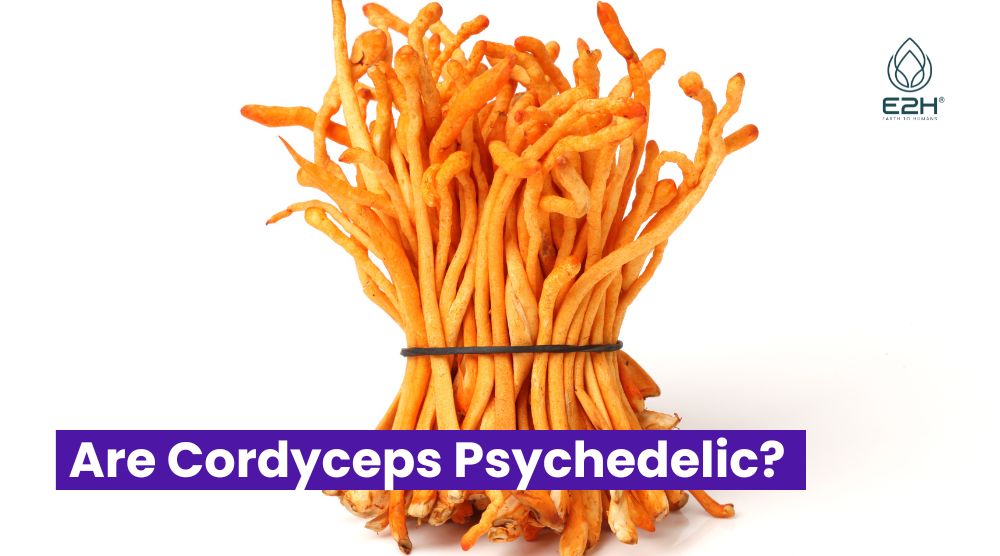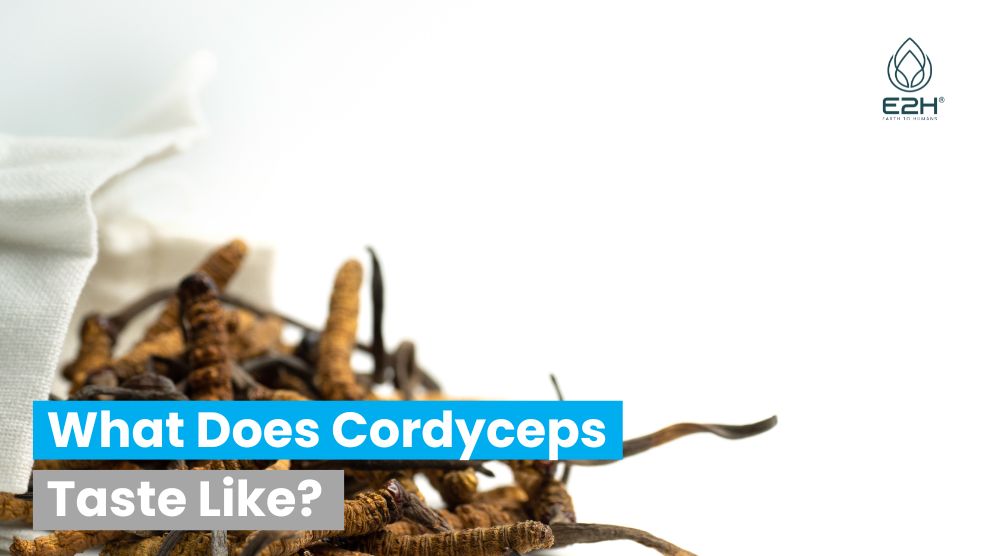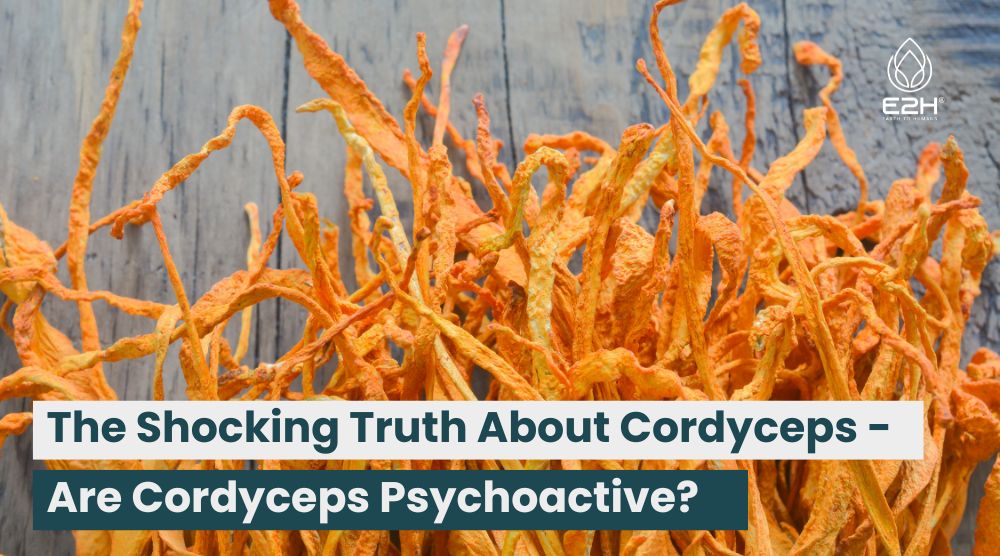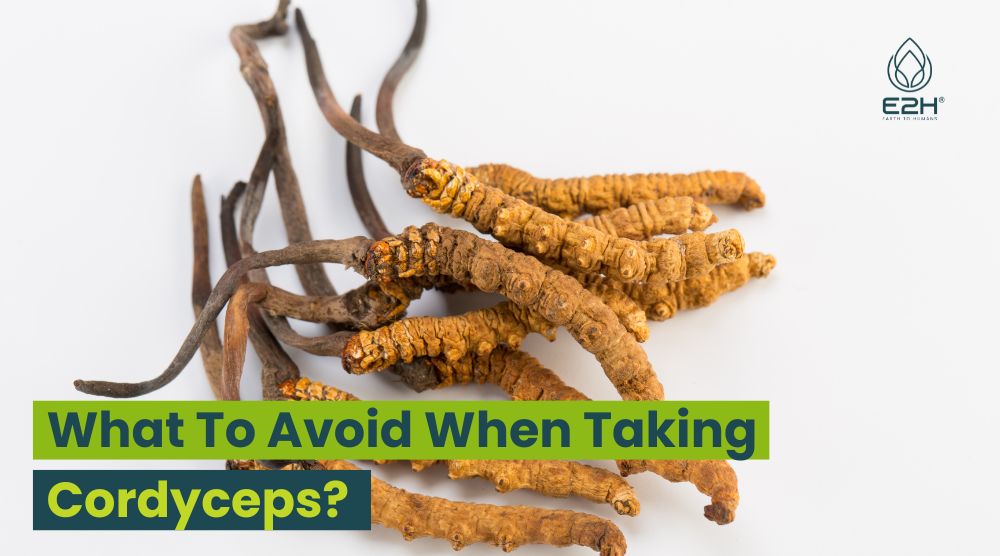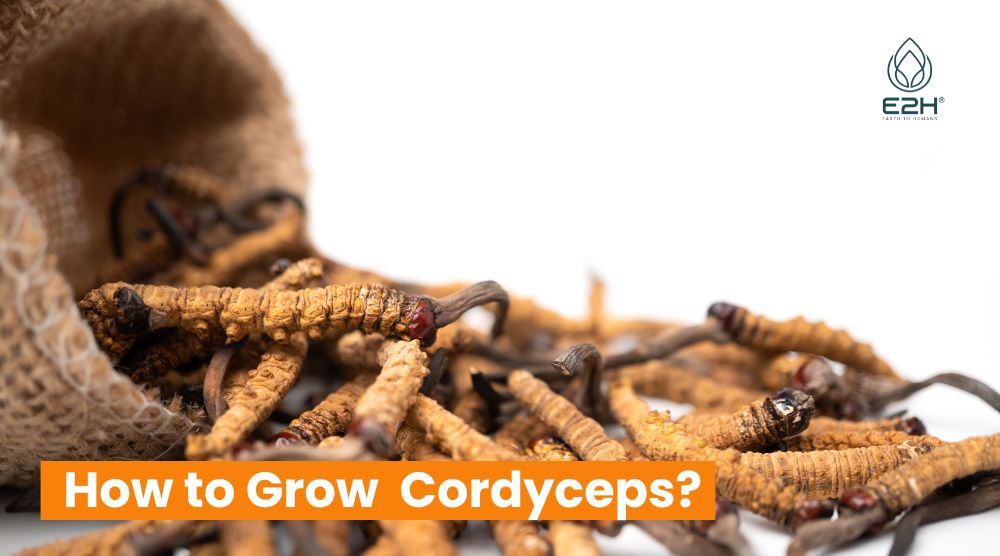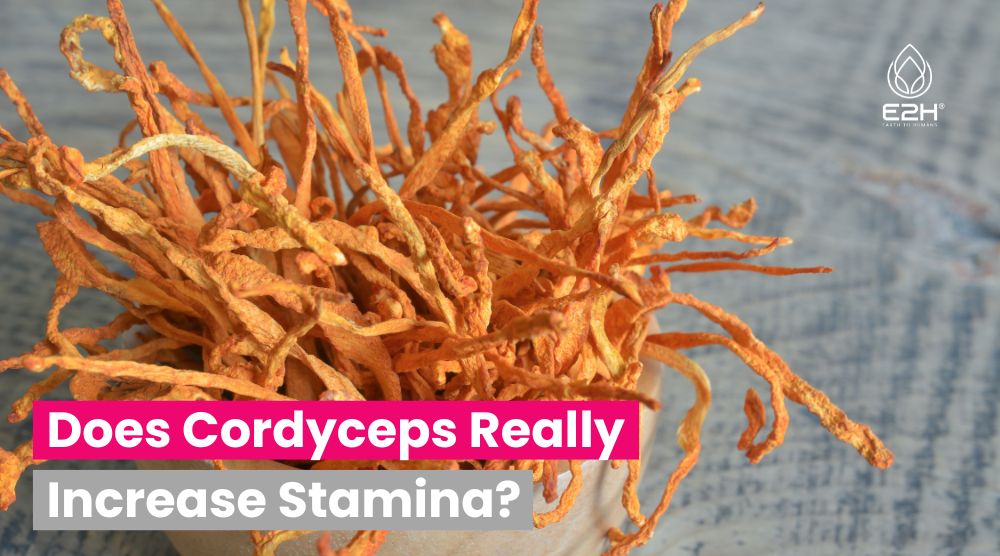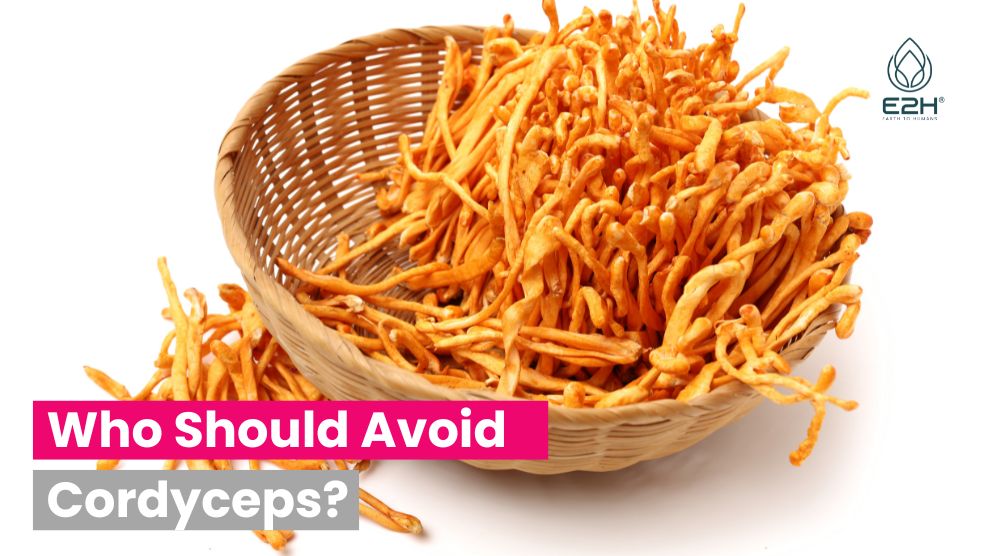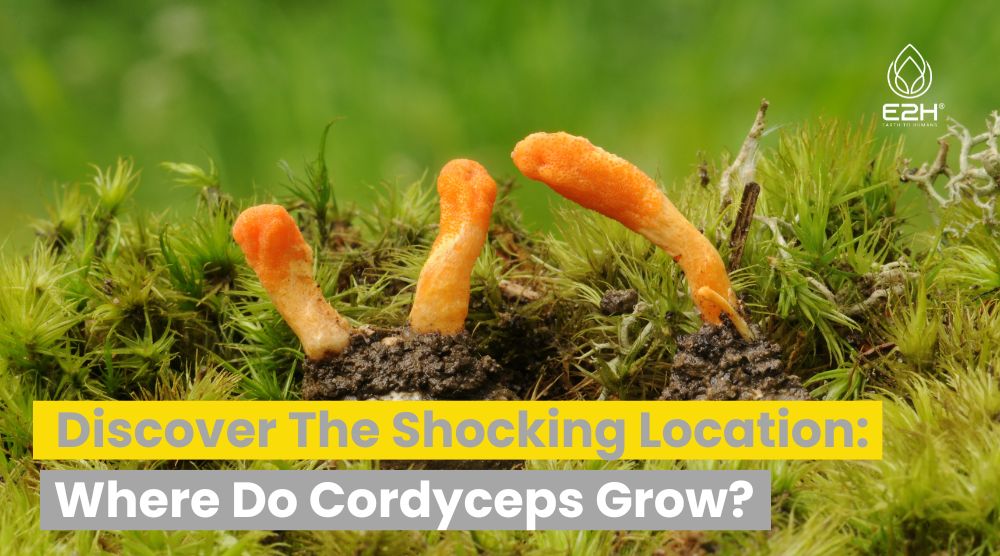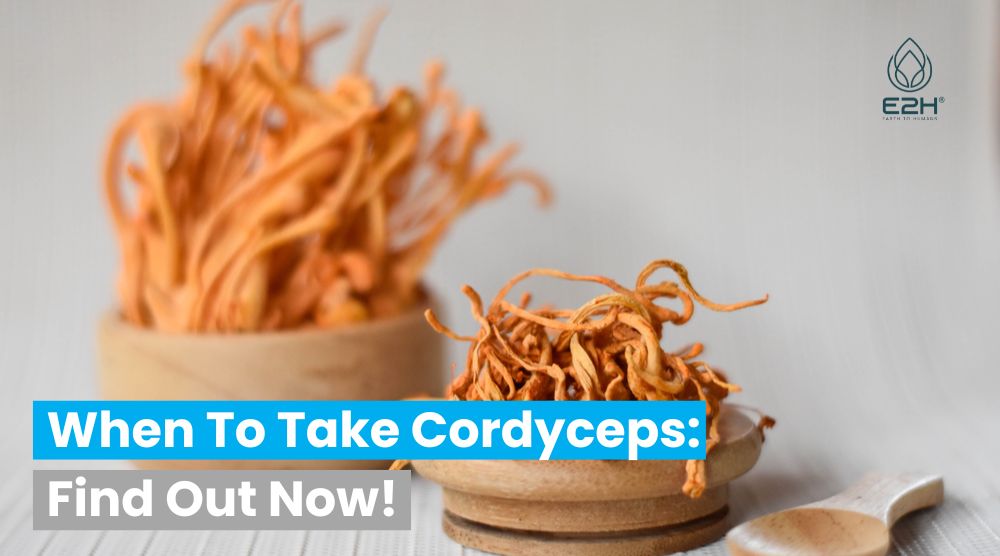No, cordyceps are not psychedelic. They are medicinal mushrooms known for their health benefits, including boosting immunity and energy, rather than having any hallucinogenic properties.
Are you curious about the mystical world of cordyceps mushrooms and wondering “are cordyceps psychedelic?” You’re not alone in this quest for knowledge. As the popularity of cordyceps mushrooms continues to soar, many are drawn to explore their potential effects, especially in the realm of psychedelic experiences. Dive deep into the fascinating history and characteristics of these unique fungi, which have been revered in traditional medicine for their myriad health benefits.
As you unravel the mysteries surrounding cordyceps, you might find yourself eager to incorporate them into your wellness routine, perhaps as a supplement to boost your immune system or enhance your energy levels. Don’t just stop at wondering; take a step further to experience the remarkable benefits of cordyceps mushrooms firsthand.
Are Cordyceps Psychedelic?
It is clear that cordyceps are not psychoactive in any way, meaning they do not have psychedelic or hallucinogenic effects. However, they are known for a range of health benefits, with positive effects including improving the immune system and potentially aiding in athletic performance.
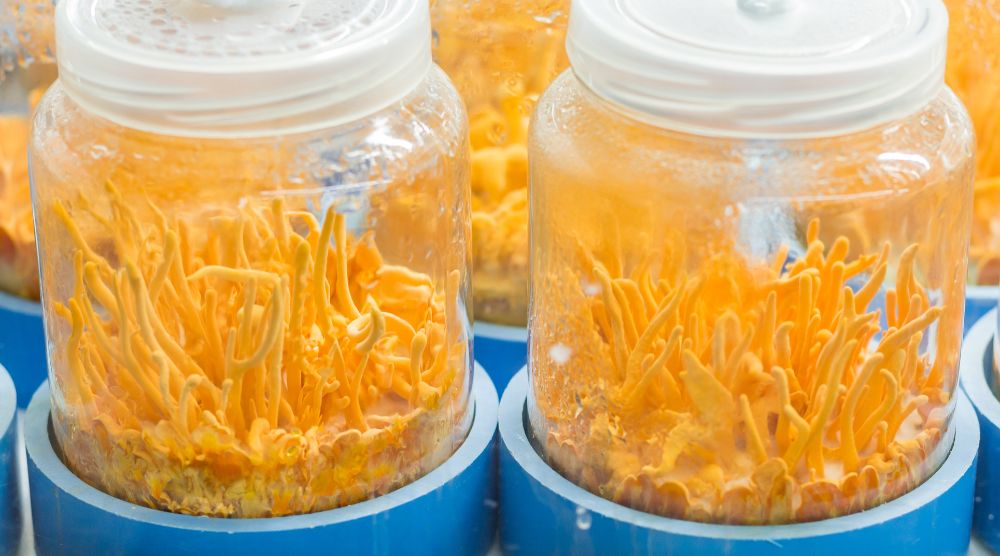
Cordyceps and Microdosing
Interestingly, some individuals are using the cordyceps powder in what is known as “microdose stacking” to enhance their energy levels when microdosing psychoactive mushrooms. This combination, which might include cordyceps, vitamin B12, and psilocybin, is believed to offer a synergistic effect, enhancing the benefits of each component.
The World of Functional Mushrooms
Cordyceps belong to a category known as functional or medicinal mushrooms. These mushrooms are not hallucinogenic but are known to improve the body’s overall functioning. Here are some of the benefits associated with cordyceps:
- Strengthening the body with energy and stamina
- Supporting healthy oxygen uptake levels
- Boosting the immune system
- Enhancing libido
- Supporting healthy liver and kidney function
In contrast magic mushrooms, psychedelic mushrooms contain psilocybin, which can alter perception and cause hallucinations. These mushrooms have a different set of effects and uses compared to cordyceps.
The Zombie Ant Phenomenon
One of the most fascinating aspects of cordyceps is their parasitic relationship with insects, particularly ants. A species known as Ophiocordyceps unilateralis can infect ants, eventually taking over their brains and manipulating their behavior to spread its spores. This phenomenon has even inspired a horror video game series with zombie themes. While this might sound somewhat psychedelic, it’s a natural, albeit gruesome, part of the cordyceps life cycle.
Cordyceps in Traditional Medicine
Historically, cordyceps have been incorporated into traditional Chinese medicine, offering a range of health benefits. They have been known to enhance energy, support heart health, and even slow tumor growth. These fungi have been embraced in the West more recently, with many people incorporating them into their daily health routines.
Ophiocordyceps Sinensis: A Pricey Delight
Among the various species of cordyceps, Ophiocordyceps sinensis holds a special place due to its rarity and the high price it commands in the market. This species of fungus grows on the caterpillars of the ghost moth and is foraged rather than cultivated, making it a prized possession in the world of cordyceps.
Cordyceps Militaris: A Popular Choice
On the other hand, Cordyceps militaris is more commonly available and is the species you are most likely to encounter if you are trying a cordyceps supplement. This species can be easily cultivated in a lab setting, making it a more affordable and popular choice among cordyceps consumers.
Growing Your Own Cordyceps
Growing your own cordyceps, particularly the Cordyceps militaris species, can be a rewarding endeavor. These fungi require specific conditions including a controlled environment with optimal temperature and humidity. Utilizing a substrate like rice or grains, enthusiasts can cultivate cordyceps at home. This not only ensures a fresh supply but also allows for a deeper connection with this revered medicinal mushroom. Moreover, cultivating cordyceps can be a cost-effective way to enjoy their numerous health benefits regularly.
How do cordyceps mushrooms interact with insects in their lifecycle?
Cordyceps mushrooms have a rather fascinating and somewhat gruesome interaction with insects during their lifecycle. These fungi are parasitic, meaning they rely on a host to complete their growth cycle. In the case of certain other cordyceps mushroom species, the hosts are insects. The fungus infiltrates the insect, eventually taking control of its brain and altering its behavior to favor the fungus’s reproductive needs.
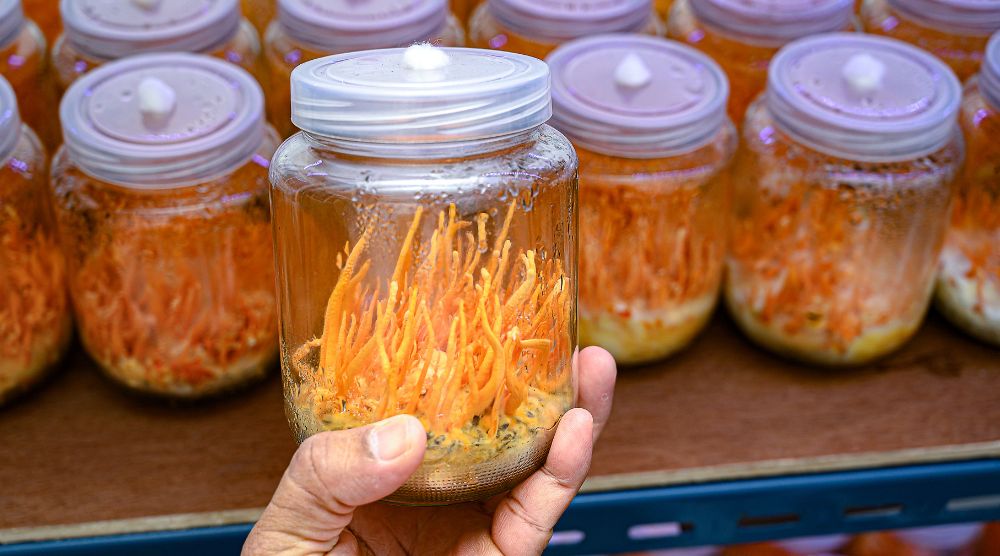
For instance, the Ophiocordyceps unilateralis species is known to infect ants, manipulating them to climb plant stems where the fungus then grows a stalk out of the ant’s head to release new spores, a phenomenon often referred to as the “zombie-ant fungus.” This intricate interaction showcases the complex and somewhat morbid lifecycle of cordyceps mushrooms in the wild.
How are cordyceps mushrooms utilized in traditional Chinese medicine?
In traditional Chinese medicine (TCM), cordyceps mushrooms are highly valued for their myriad health benefits. These fungi have been incorporated into TCM for centuries, often used as a remedy to enhance vitality, boost the immune system, and improve kidney and lung health.
Cordyceps are believed to have properties that support good heart and mental health conditions and enhance libido as well. They are typically administered in various forms such as soups, teas, or as powdered extracts.
The Ophiocordyceps sinensis species, in particular, has been a prized ingredient in TCM, known for its potential to increase energy and stamina, making it a popular choice for individuals seeking to enhance their overall well-being through natural remedies.
Are there any known interactions between cordyceps mushrooms and psychedelic substances?
As of the data gathered and my existing knowledge, there are no documented interactions between cordyceps mushrooms and psychedelic substances. Cordyceps, being non-psychoactive, do not contain hallucinogenic compounds found in psychedelic mushrooms, such as psilocybin.
However, some individuals are exploring the use of cordyceps in “microdose stacking” where they are combined with small doses of psychedelic substances to potentially enhance the benefits of each component, including energy and stamina enhancement. It is always recommended to consult with a healthcare provider before combining any supplements or substances, especially when it involves psychoactive compounds.
What should consumers look for when choosing a cordyceps supplement?
When choosing a cordyceps supplement, consumers should prioritize quality and authenticity. Given the popularity of cordyceps, the market is flooded with various products, and not all are created equal.
- Firstly, it is essential to choose supplements from reputable sources or brands that provide detailed information about the product’s origin and cultivation methods.
- Secondly, consumers should look for supplements that contain the species Cordyceps militaris or Ophiocordyceps sinensis, as these are the most researched and beneficial species. Additionally, checking for third-party testing or certifications can be a good indicator of the product’s quality and purity.
- Lastly, reading reviews and testimonials can provide insights into the effectiveness of the product. Being informed and cautious can help consumers make the best choice for their health and well-being.
Do cordyceps mushrooms have any psychedelic or hallucinogenic effects?
No, cordyceps mushrooms do not have psychedelic or hallucinogenic effects. They are classified as functional or medicinal mushrooms, renowned for their health benefits rather than mind-altering psychoactive properties themselves.
Cordyceps are known to enhance energy, boost the immune system, and support various other aspects of health, making them a popular choice in traditional medicine and modern wellness routines. It’s essential to differentiate them from psychedelic mushrooms, which contain compounds like psilocybin that can cause hallucinations and altered perceptions.
Can you trip off cordyceps?
No, you cannot trip off cordyceps. These fungi are not classified as psychedelic or hallucinogenic. Cordyceps are renowned in the world of medicinal mushrooms for their potential health benefits, including enhancing physical performance and boosting the immune and nervous system both. They do not contain psychoactive compounds like psilocybin, which is found in psychedelic mushrooms, and therefore do not induce a “trip” or altered state of consciousness.
How does cordyceps make you feel?
Consuming cordyceps can make you feel invigorated and energized. Many users report experiencing an increase in stamina and reduced fatigue, which is why cordyceps are often used by athletes and individuals leading active lifestyles.
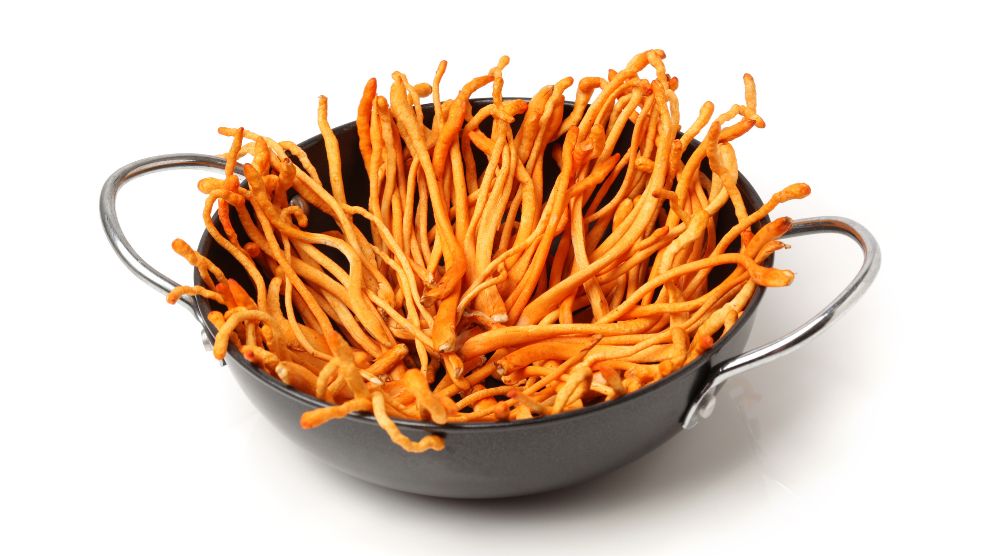
Additionally, they might help in less stress, enhancing libido and promoting a healthy heart. It’s important to note that individual experiences may vary, and it’s always best to consult with a healthcare provider before adding any supplement to your regimen.
Is Cordyceps militaris psychedelic?
No, Cordyceps militaris is not psychedelic. This species of cordyceps is known for its potential health benefits, including immune system support and energy enhancement. It is a popular choice in both traditional Chinese medicine and modern wellness routines for its reputed ability to improve various aspects of health without inducing any psychedelic or hallucinogenic effects. It’s a safe and natural supplement that can be a valuable addition to a healthy lifestyle.
FAQs
What are the main uses of cordyceps mushrooms?
Enhancing energy, boosting immunity, and supporting heart health.
Can cordyceps aid in sexual health?
Yes, they are known to potentially enhance libido.
Where can I purchase cordyceps supplements?
Reputable health stores, pharmacies, or online marketplaces.
Are cordyceps mushrooms expensive?
Prices vary; Ophiocordyceps sinensis is notably pricier due to its rarity.
Can cordyceps mushrooms be consumed in tea?
Yes, they are commonly consumed as teas or infusions
Conclusion
As we come to the end of our deep dive, I hope I have shed some light on the question, “are cordyceps psychedelic?” While they may not offer a psychedelic experience, cordyceps are a powerhouse of mental health benefits that can be a valuable addition to your wellness routine.
Remember, the world of cordyceps is vast and fascinating. Whether you are consuming them for their health benefits or growing them at home, cordyceps offer a unique and enriching experience. So, dear cordyceps consumers, here’s to exploring the wonderful world of cordyceps, one mushroom at a time!
